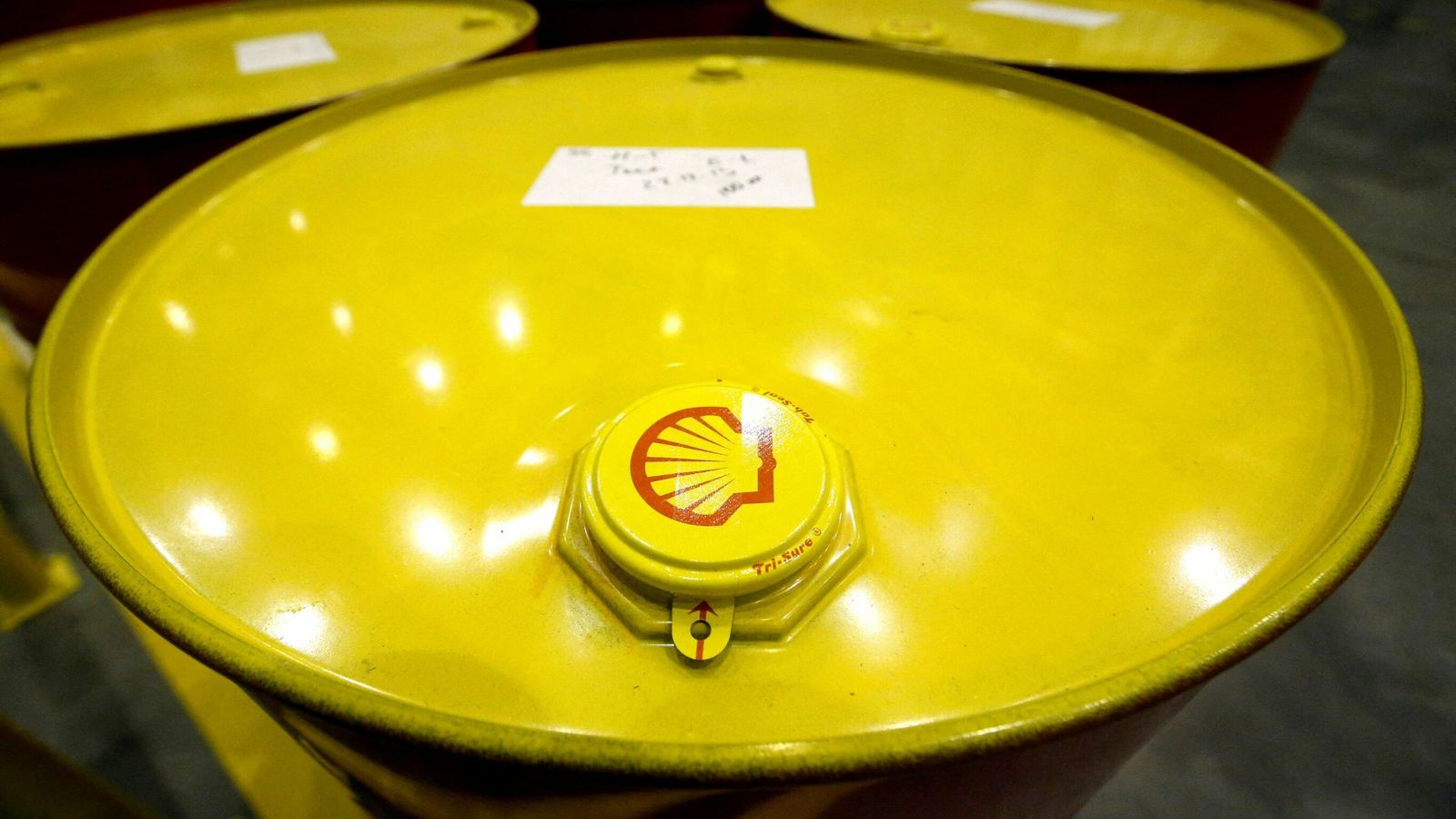Shell profits cut by half due to plunging energy prices
Shell has revealed a big fall in the second quarter of its financial year, largely due to energy prices plunging from their Russia-Ukraine war peak.
The oil and gas major reported net profits of just over $5bn (£3.9bn) for the three months to the end of June.
The figure represents a drop of more than 50% on the $11.5bn achieved in the same period last year and fell short of analysts’ estimates.
It was also well down on the $9.65bn sum the company raked in during the first three months of the year.
Shell said it was, nevertheless, rewarding shareholders with a further share buyback and hike to its dividend.
Chief executive Wael Sawan said: “Shell delivered strong operational performance and cash flows in the second quarter, despite a lower commodity price environment.
“Today we are delivering on our Capital Markets Day commitment of a 15% dividend increase. We are going further on our buyback guidance by commencing a $3bn programme for the next three months and, subject to board approval, at least $2.5bn at the Q3 2023 results.
“As we deliver more value with less emissions, we will continue to prioritise share buybacks, given the value that our shares represent.”
The company reported on its progress as the sector continues to face pressure on the transition to net zero emissions in the fight against climate change and contributions to the public purse given the energy-driven cost of living crisis.
On the latter issue, oil and gas prices have plunged from the highs seen in the wake of Russia’s invasion.
Brent crude peaked in June 2022 at $122 a barrel It is currently trading just above $80 but had been nearer $75 during Shell’s most recent reporting period.
Natural gas costs are more country specific but hit unprecedented levels when supplies from Russia were cut off.
Contracts for the year end have the price at 133p per therm currently – down from highs last summer above 700p.
The downwards shift in wholesale prices is being reflected in lower energy bills for households though the energy price cap is currently £1000 above its pre-pandemic average.
It is mostly due to the gas element which remains elevated on typical levels by more than half.
For all the latest business News Click Here


